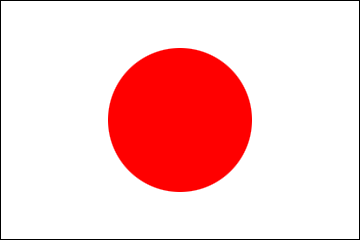Article by Genevieve Shiroma, the former participant of the invitation program
2016/6/15
This year marked the eleventh anniversary of the Japanese American Leadership Delegation (JALD) program and trip to Japan. It is sponsored by the Japanese Ministry of Foreign Affairs, the Japan Foundation and the U.S.-Japan Council. I was privileged to be a member. It was a tremendous experience and I appreciate the opportunity.
The 2011 Delegation included representatives from business, communications, education, nonprofit and government sectors. Advance briefing was provided in Los Angeles at the Japanese American National Museum on key issues, which were then reinforced at each of our meetings in Japan. After experiencing the Great East Japan Earthquake on the last day of the trip, we are forever linked to the Japanese people and to Japan's recovery.
During the trip we were provided the extensive opportunity to meet and exchange information with Japanese leaders in government, business, political, education, non-profit, and cultural sectors. We were able to meet with Ambassador John Roos at the American Embassy in Tokyo. Her Imperial Highness Princess Takamado graciously took time to meet with the Delegation. These meetings allowed us to gain a greater understanding about Japan.
I was struck by the consistent themes of concern. Business groups, nonprofit organizations, educators, elected Parliamentarians and government representatives described flattened productivity, an aging population, large debt, and a "Galapagos" syndrome threatening to hamper Japan's international competitiveness. A number of Japanese representatives touched on whether Japan needed a renaissance to the scale of the Meiji Restoration Era (1869-1912).
I juxtapose these views with the fact that Japan has a very high GDP, strong work ethic, high quality products and technology, values its heritage and provides many amenities for its citizens. Further, Japan has emerged out of adversity time and time again to rebuild and retool. On the heels of the massive earthquake, tsunami and nuclear power plant issues, they are doing so once again.
Since returning, I have had an opportunity to work with the US-Japan Council and fellow Delegates, participating on panel discussions focused on energy. It is my hope that the American experience can be of help to Japan as it recovers.
Throughout my childhood growing up a third generation sansei in the upper San Joaquin Valley of California, I was fascinated with my mother's stories of my Issei grandparents. I was very aware from her stories that the Meiji Era allowed my grandparents to immigrate to America. I came away from my week in Japan appreciating my personal heritage, with the firm belief in Japan's ability to retool itself as it has in the past.
The 2011 Delegation included representatives from business, communications, education, nonprofit and government sectors. Advance briefing was provided in Los Angeles at the Japanese American National Museum on key issues, which were then reinforced at each of our meetings in Japan. After experiencing the Great East Japan Earthquake on the last day of the trip, we are forever linked to the Japanese people and to Japan's recovery.
During the trip we were provided the extensive opportunity to meet and exchange information with Japanese leaders in government, business, political, education, non-profit, and cultural sectors. We were able to meet with Ambassador John Roos at the American Embassy in Tokyo. Her Imperial Highness Princess Takamado graciously took time to meet with the Delegation. These meetings allowed us to gain a greater understanding about Japan.
I was struck by the consistent themes of concern. Business groups, nonprofit organizations, educators, elected Parliamentarians and government representatives described flattened productivity, an aging population, large debt, and a "Galapagos" syndrome threatening to hamper Japan's international competitiveness. A number of Japanese representatives touched on whether Japan needed a renaissance to the scale of the Meiji Restoration Era (1869-1912).
I juxtapose these views with the fact that Japan has a very high GDP, strong work ethic, high quality products and technology, values its heritage and provides many amenities for its citizens. Further, Japan has emerged out of adversity time and time again to rebuild and retool. On the heels of the massive earthquake, tsunami and nuclear power plant issues, they are doing so once again.
Since returning, I have had an opportunity to work with the US-Japan Council and fellow Delegates, participating on panel discussions focused on energy. It is my hope that the American experience can be of help to Japan as it recovers.
Throughout my childhood growing up a third generation sansei in the upper San Joaquin Valley of California, I was fascinated with my mother's stories of my Issei grandparents. I was very aware from her stories that the Meiji Era allowed my grandparents to immigrate to America. I came away from my week in Japan appreciating my personal heritage, with the firm belief in Japan's ability to retool itself as it has in the past.
